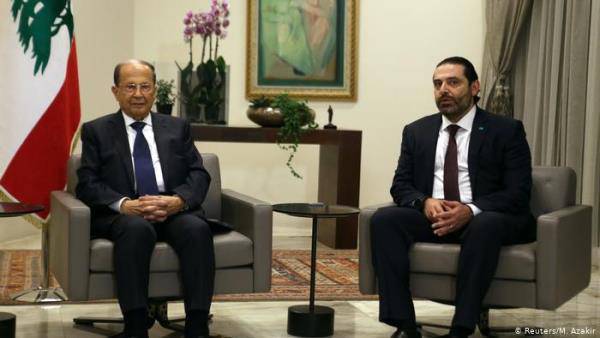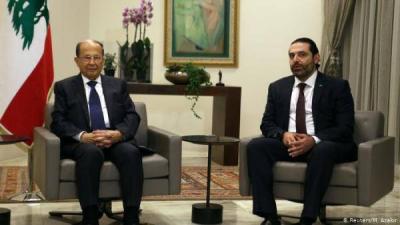Under the above title, Michael Young wrote in the National newspaper:
Since October, Lebanon has been mired in a government formation process that is going nowhere. While the country continues to suffer, President Michel Aoun and Prime Minister-designate Saad Hariri remain divided over who has the final authority to name ministers, creating the basis for a constitutional crisis. Several weeks ago, Mr. Hariri presented a ministerial proposal to Mr. Aoun for approval. The president rejected the list put forth to him, stating that the designated prime minister did not respect "the criteria for fair representation according to the provisions of the constitution."
Mr. Aoun wants to appoint all Christian ministers and accused Mr. Hariri of depriving him of what he conceded to Hezbollah and the Amal Movement. The prime minister-designate has already allowed both parties to name all Shiite ministers, but he insists that he himself has a parliamentary bloc from which he is entitled to appoint a certain number of Christians.
Despite Mr. Hariri's position, other issues have also arisen in the government formation process that have reflected poorly on the president. The first is that his approach has been driven by a desire for Mr. Bassil to succeed him in the presidency. The second is that by obstructing the government, he is drifting into questionable constitutional territory.
The writer notes that Mr. Aoun's desire to appoint all Christian ministers—like his demand to name ministers for key portfolios such as the ministries of Interior, Justice, and Defense—will likely lead to a strong control over the government when Mr. Aoun’s term ends in 2022. Mr. Bassil initially demanded what is known as a "blocking third" in the government, so that he could potentially bring down the government before Mr. Aoun's departure if all his ministers resigned, using the vacuum to coerce other politicians to vote for him as president. It is unclear whether Mr. Aoun and Mr. Bassil have abandoned this scenario.
A statement issued last week by the presidential palace indicated that the president did not demand the blocking third. However, it is not entirely clear whether Mr. Bassil agrees with this. Regardless of the truth, the demands for ministries involving internal security and justice see Mr. Aoun and Mr. Bassil seeking to open files of corruption against their political rivals and leverage this to support Mr. Bassil's presidency.
The second issue is that Mr. Aoun seems to have overstepped his constitutional role in the government formation process. The constitution is ambiguous, stating only that once the parliament appoints a prime minister, "the parliamentary consultations involved in forming the government shall take place." Nevertheless, the decree establishing the council of ministers must be co-signed by the president. Mr. Aoun has interpreted his signed role as a veto over any government he does not approve. However, such authority effectively means that the president forms the government. The amended constitution of 1990 was notable for reducing presidential powers in favor of the council of ministers, so it would be strange for the president to be allowed to form the government, even indirectly.
Mr. Aoun's approach, if typical, means the erosion of the Sunni prime minister's powers. This has generated Sunni consensus around Mr. Hariri. It is very clear that if Mr. Hariri does not form a government, there will be no Sunni willing to do so in his place. This makes Mr. Aoun's position reckless at a time when Lebanon faces economic ruin on top of a serious COVID-19 crisis.
The writer questions what the way out of this impasse might be. As of now, there seems to be no solution, and it does not currently appear that Hezbollah, the main power broker in the country, wishes to alienate Mr. Aoun by pushing him to make concessions. However, it is uncertain how long the party can allow the situation to deteriorate, as its Shiite base suffers like everyone else in Lebanon. If the deadlock reaches a point where Hezbollah's local and regional interests are at risk, the party may try to impose a compromise solution. However, the context has changed. Initially, when Mr. Hariri agreed to lead the government, he stated he would create a "functioning government" to implement the reforms requested by France and the international community to unlock foreign funding for Lebanon. Today, the French have completely abandoned the Lebanese political class.
Young concludes that when the economic crisis hit Lebanon a year ago, many Lebanese realized that the corrupt politicians in power would obstruct any real reform in the country to protect their interests. However, they could not have imagined that the situation would get worse. Five months after the horrific explosion at the Beirut port, unscrupulous politicians are still meddling while Lebanon burns.




